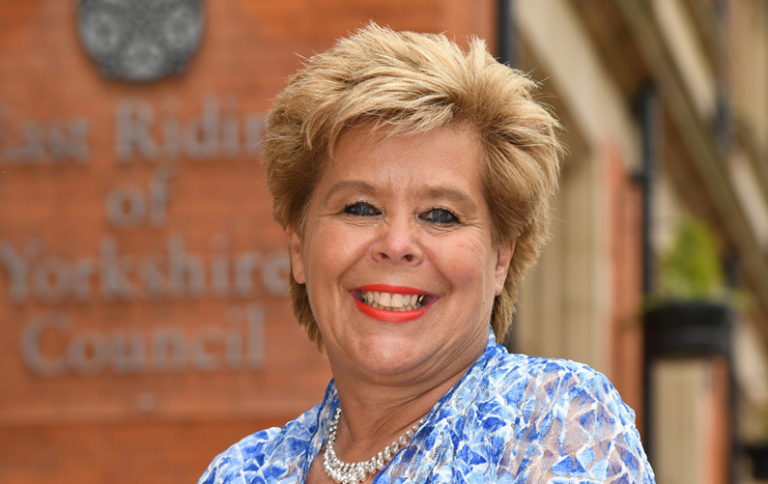Airport future: Chamber issues stern warning over mudslinging and electioneering
Could South Holderness be suitable for a nuclear waste disposal site?
“Understanding what a GDF is and exploring the associated benefits is critical to the decision-making process for any community, because it will ultimately be the local community who decide.”
Dr David Richards, independent Chair of the Working Group, said: “The South Holderness GDF Working Group marks the beginning of finding out more about what a GDF is and gives our community an opportunity to share their thoughts about what it means for them. “We want to work with local communities to discuss the potential of a GDFand the establishment of a Community Partnership, which if formed would benefit local good causes through grants of up to £1million pounds per year.“My role as Chair is to make sure local communities have access to information and to understand what people think about a GDF. We look forward to meeting local people and listening to their views.”
A GDF is internationally recognised by governments and scientists as the only viable permanent solution for the safe disposal of higher-activity radioactive waste in the long-term. It involves isolating the waste deep underground in suitable geological formations, placing it in highly engineered vaults and tunnels, keeping the waste safe and secure over the many thousands of years it will take for the radioactivity to naturally reduce. NWS will be a member of the South Holderness GDF Working Group, along with the independent Chair, David Richards, Invest East Yorkshire (the Interested Party), East Riding of Yorkshire Council and members of the community. NWS CEO Corhyn Parr, said: “South Holderness joins three other communities involved in the GDF siting process who are already learning more about this vital project and the benefits and opportunities it could bring, such as the creation of thousands of jobs and opportunities for investment in local infrastructure. “We are looking forward to meeting local people, providing more information, answering questions, and listening to all views. This is a consent-based process, meaning if the community does not express support for a GDF it won’t be built there.”Hull gets £22m to develop low carbon heating network
“Our upgrades will also make sure our existing heat networks are upgraded – so customers can get the reliable heating supply they deserve.”
Heat networks supply heating and hot water to homes and businesses via heat pumps or sources from underground, manufacturing, and waste management. They help cut carbon emissions by supplying heat to multiple buildings from a central source, avoiding the need for households and workplaces to rely on individual, energy-intensive heating solutions, such as gas boilers. The transition to heat networks forms a major part of the UK’s carbon reduction commitment, with heating in buildings making up 30% of all UK emissions.Forgemasters adds new Non-exec Director to its Board
Illegally dumping waste to protect his fishing lakes lands man with £9,500 fine and suspended sentence
“Taylor showed a blatant disregard for the law and the community around him. Building unauthorised flood defences or conducting unauthorised works in a flood plain is a serious criminal offence and we are determined to take action to protect flood prone communities and the environment.”
Deputy District Judge Garland said Taylor had been given ‘repeated warnings’ and told him: “It’s clear that there was a deliberate disregard for the rules in the way you went about your business, creating a potential risk.” The company which transported the waste to the Catterick Complex, Greenford Haulage & Aggregates Ltd, has previously been subject to an Enforcement Undertaking, donating £30,000 to Yorkshire Dales Rivers Trust.Building a greener workspace with sustainable office practices in 2024
Batley school sold to children’s services provider
Grants of up to £75k to be made available to get foreign recognition for UK professionals
“This new round of funding will help open new doors for UK-qualified professionals, allowing them and their firms to focus on winning contracts, exporting their expertise abroad and growing their businesses.”
This third round of funding follows previous successful rounds which led to:- Agreements between the UK’s Financial Reporting Council and their New Zealand and Swiss counterparts for auditors, allowing UK audit firms to sell their services more easily in those countries.
- Work towards arrangements in sectors like legal services, accountancy and architecture with a range of jurisdictions such as Morocco, Hong Kong, and India.
New head of Aon’s Leeds and Sheffield offices
Aon plc, a professional services firm, has named Paul Winrow as head of office for Leeds and Sheffield.
Paul succeeds Karen Wilczek, who has retired following a career of over 37 years with Aon. In his new role, Paul assumes overall responsibility for the firm’s Leeds Embankment and Sheffield offices, and the 36-strong Corporate Commercial Risk Solutions team.
This expands Paul’s current role as the head of office of the firm’s Leicester Corporate Commercial Risk Solutions office.
Drawing on 22 years’ industry experience, Paul will implement the national and regional strategy, develop colleagues, and drive a positive and supportive culture to ensure clients receive the highest level of service to achieve their goals.
Paul joined Aon in 2016 as client director overseeing a portfolio of clients. Over time, his remit expanded to include managing colleagues and joining the Leeds and Sheffield office management teams, before being promoted to head of office for Leicester in October 2022. Prior to joining Aon, he held roles with Willis Towers Watson and Marsh.
Paul Winrow said: “I am proud to have been appointed head of Aon’s Leeds and Sheffield offices at such an exciting time for the firm and following a busy and successful 2023.
“I am surrounded by a talented and knowledgeable team, and I’m looking forward to developing colleagues to ensure that they can continue to support our extensive roster of clients with their commercial insurance needs.
“It has always been my ambition to progress into a leadership role and Aon has provided me with the opportunity to achieve this goal. I am really looking forward to building on all Karen has achieved and working with my colleagues and clients across Leeds and Sheffield.”












